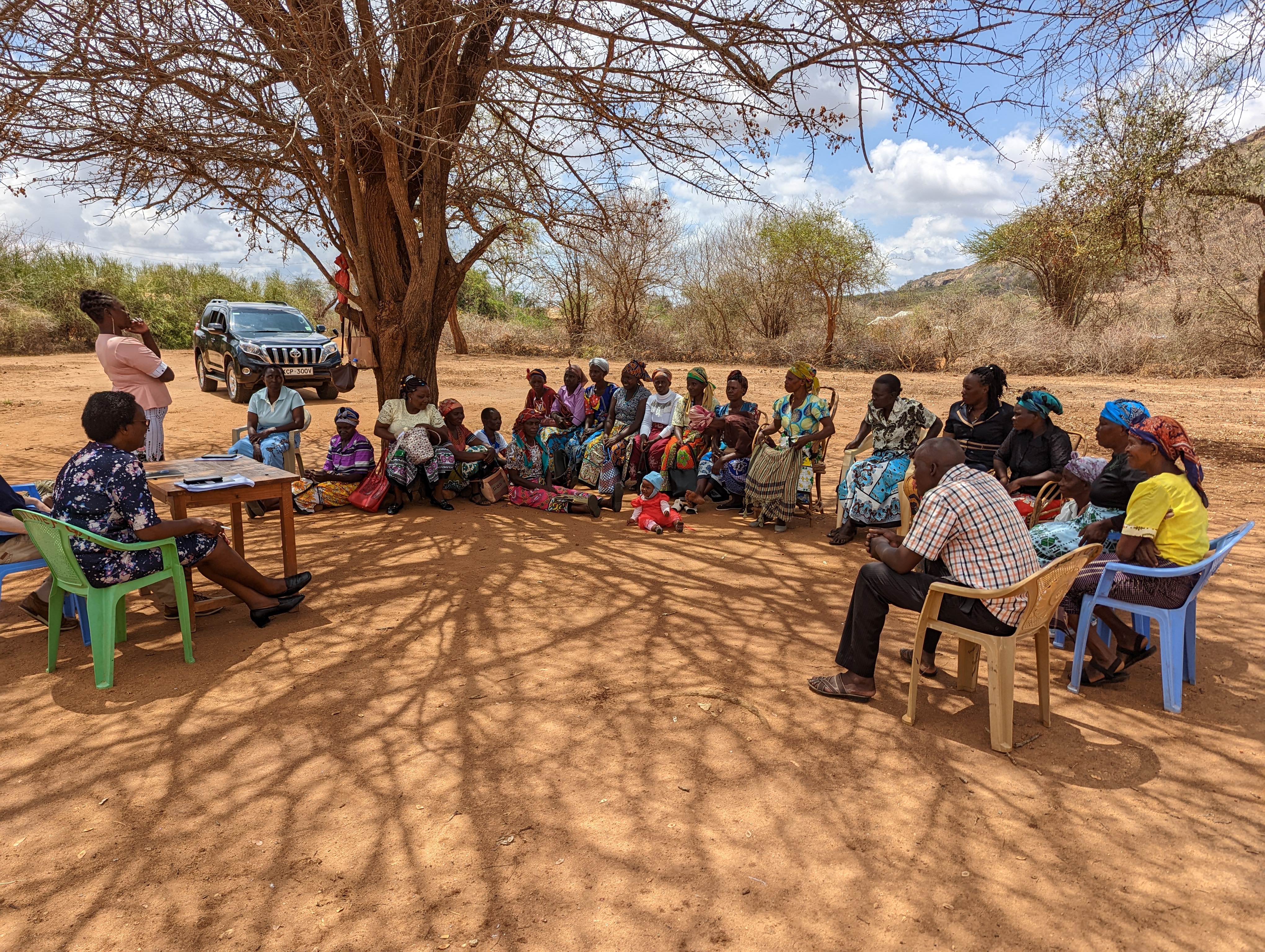Access to credit leads to higher agriculture yields which increases farmer incomes - IOE
Nairobi, 20 July 2023 – IFAD-supported projects in Kenya, Ethiopia and Zambia have increased the availability of financial services in rural areas. In Kenya and Ethiopia, where impact data is available, this has led to accumulation of assets, improved food security and reduced poverty for farmers. Greater farmer incomes as a result of higher agricultural yields, made possible by expanded access to credit, have resulted in an increase in asset ownership of 54% in Kenya and 56% in Ethiopia. In Kenya, 53% of households reported an average increase in agricultural yields of 49%, while in Ethiopia increased yields resulted in an eightfold increase in household income on average. These are just some of the findings that emerge from the latest Project Cluster Evaluation (PCE) report carried out by the Independent Office of Evaluation of IFAD (IOE). Mikal Khan, IOE Evaluation Officer and lead author of the PCE, presented the report during a learning event on 19 July 2023.
“What we see is that increased access to finance, especially loans, are put to good use by smallholder farmers, who have the capacity to increase their productivity and assets as well”, highlighted Mr Khan.
Organized by IOE, and physically hosted by the IFAD East and Southern Africa (ESA) office in Nairobi, the learning event took place in hybrid modality, with some participants attending in person and others joining on-line. IFAD staff working on rural finance in ESA provided important contributions to the discussions throughout the webinar, alongside other project staff and practitioners working on the topic of rural finance. Sara Mbago-Bhunu, Regional Director of the IFAD ESA Division participated in the event, and delivered opening and closing remarks.
“In East and Southern Africa, we have a large number of inclusive finance operations which have lasted for a long period and have had significant impacts as well as given us an opportunity to gain a lot of learning around the potential and catalytic effects of rural finance for smallholder farmers. This is extremely important as we now face rising food insecurity and we still see that many financial institutions are not crowding in the much-needed finance in the agricultural sector to bring about the transformation in terms of improved nutrition, incomes and jobs for small scale farmers across the region”, explained Ms Mbago-Bhunu.
The two-pronged objectives of the session were to share the main findings and lessons identified in the evaluation, and to facilitate discussion and reflection on how IFAD can improve its support to inclusive rural finance.
The PCE analysed three projects focused on rural finance in East and Southern Africa (ESA), namely the Programme for Rural Outreach of Financial Innovations and Technologies (PROFIT) in Kenya; the Rural Finance Expansion Programme (RUFEP) in Zambia; and the Rural Financial Intermediation Programme II (RUFIP II) in Ethiopia. These projects provided examples of interventions at institutional, infrastructure, and policy and regulatory levels of the financial sector. The projects also involved a wider variety of partners, ranging from village-based financial organizations to commercial banks.
During the learning event, Mr Khan moderated a panel discussion in which participants shared specific examples of activities and practices to illustrate how rural finance projects can balance complex designs with effective implementation, and what IFAD should do to enhance the performance of financial service providers on targeting and reporting. The panel comprised Francesco M. Rispoli, Head of the IFAD Southern Africa Multi-Country Office in Johannesburg, Sauli Hurri, IFAD’s senior regional technical specialist on rural finance, markets and value chains in ESA, and Jan Kerer, rural and agricultural finance specialist.
Successful experiences included in-country pre-design assessments of the rural finance landscape to determine the strengths and weaknesses of potential financial service providers (FSPs). This resulted in a relevant approach to engage them and build their capacity. These assessments included valuable analysis of the countries’ macroeconomic factors and regulatory environment, market structure and infrastructure, financial institutions, risk factors, technology and innovation. While these areas of analysis were important at the design phase, the most important aspect of the pre-design assessments was a review of FSP’s capacity to reach out to the intended target group, for example by looking at their product range, terms and conditions, branch network and outreach strategy.
Another positive finding is the engagement with communities, which has visibly increased a culture of savings, which is likely to continue benefiting households after the projects’ end.
Sustainability, nonetheless, remains a matter of concern. Moreover, FSP’s reliance on subsidized finance, low capacities and widespread perception of high risks in serving smallholder farmers will limit the durability of project results. Other challenges observed across the projects are the absence of in-depth target group segmentation and the lack of clear targeting strategies. In addition, the report found monitoring agreements made with FSPs and capacity-building activities to be insufficient to ensure adequate reporting and utilization of financial services, especially loans.
“What is clear from our experiences is that rural finance in highly technical, so implementing these projects requests a high level of capacity which often we do not find in programme management units at the country level”, noted Mr Rispoli.
Weak FSP institutional capacity remains a core challenge of the sector. The technical assistance was often delayed or of insufficient quality to substantially expand the capacities of FSPs in a sustainable way. As such, FSPs remain vulnerable to dependence on subsidized finance, external shocks and a potential mission drift as they may shift away from agriculture.
Building on these findings, the PCE recommends that mechanisms should be developed at the design stage to ensure that FSPs should be required to provide tangible benefits to the projects for their privilege to access subsidized refinance. Such benefits could be, for example, ensuring greater outreach efforts to serve remote or marginalized groups. In addition, FSPs should provide more rural finance-specific data in their reports to IFAD. Such information is key to allowing rural finance experts to assess the status of projects and provide recommendations on how to further improve. Furthermore, it is advised that projects must factor in the needs of young people to assess which FSPs are in the best position to serve this target group and what financial products and services are most needed.
This PCE is the second of its kind, and it was introduced by IOE as a new evaluation product with the aim of enhancing learning aspects of project-level evaluations through comparative analyses of a small number of projects sharing common features. The topic of rural finance is highly relevant in IFAD’s portfolio, considering that it has invested over US$3 billion in rural finance systems over the past four decades. The focus on one region makes a comparison between different projects more meaningful, as many countries in the region face similar challenges related to expansion of rural finance markets.
For further information, please contact Alexander Voccia [here]
RESOURCES
- To access the Executive Summary of the PCE Rural Finance, please click here.
CONTACTS

